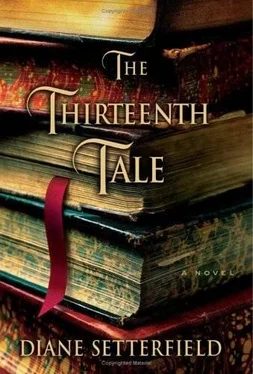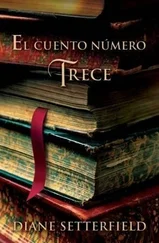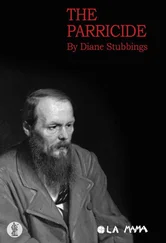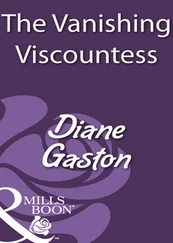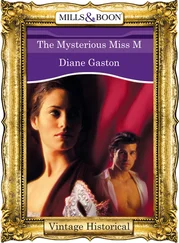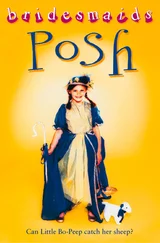But the voice in my head recounted episode after episode from the story I knew so well. The violence in the topiary garden, each swipe of the shears a blow to John's heart. The attacks on Emmeline, the hair-pulling, the battering, the biting. The baby removed from the perambulator and left carelessly, to die or to be found. One of the twins was not quite right, they said in the village. I remembered and I wondered. Was it possible? Had the tears I had just witnessed been tears of guilt? Tears of remorse? Was it a murderess I had held in my arms and comforted? Was this the secret Miss Winter had hidden from the world for so long? An unpleasant suspicion revealed itself to me. Was this the point of Miss Winter's story? To make me sympathize with her, exonerate her, forgive her? I shivered.
But one thing at least I was sure of. She had loved him. How could it be otherwise? I remembered holding her racked and tormented body against mine and knew that only broken love can cause such despair. I remembered the child Adeline reaching into John's loneliness after the death of the Missus, drawing him back to life by getting him to teach her to prune the topiary.
The topiary she had damaged.
Oh, perhaps I wasn't sure after all!
My eyes roamed over the darkness outside the window. Her fabulous garden. Was it her homage to John-the-dig? Her lifelong penitence for the damage she had wrought?
I rubbed my tired eyes and knew I ought to go to bed. But I was too tired to sleep. My thoughts, if I did nothing to stop them, would go round in circles all night long. I decided to have a bath.
While I waited for the tub to fill, I cast about for something to occupy my mind. A ball of paper half visible beneath the dressing table caught my attention. I unfolded it, flattened it out. A row of phonetic script.
In the bathroom, with the water thundering in the background, I made a few short-lived attempts at picking some kind of meaning out of my string of symbols. Always there was that undermining feeling that I hadn't captured Emmeline's utterance quite accurately. I pictured the moonlit garden, the contortions of the witch hazel, the grotesque, urgent face; I heard again the abruptness of Emmeline 's voice. But however hard I tried, I could not recall the pronouncement itself.
I climbed into the bath, leaving the scrap of paper on the edge. The water, warm to my feet, legs, back, felt distinctly cooler against the macula on my side. Eyes closed, I slid right under the surface. Ears, nose, eyes, right to the top of my head. The water rang in my ears, my hair lifted from its roots.
I came up for air, then instantly plunged underwater again. More air, then water.
In a loose, underwater fashion, thoughts began to swim in my mind. I knew enough about twin language to know that it was never totally invented. In the case of Emmeline and Adeline, it would be based on English or French or could contain elements of both.
Air. Water.
Introduced distortions. In the intonation, maybe. Or the vowels. And sometimes extra bits, added to camouflage rather than to carry meaning.
Air. Water.
A puzzle. A secret code. A cryptograph. It wouldn't be as hard as the Egyptian hieroglyphs or Mycenaean Linear B. How would you have to go about it? Take each syllable separately. It could be a word or a part of a word. Remove the intonation first. Play with the stress. Experiment with lengthening, shortening, flattening the vowel sounds. Then what did the syllable suggest in English? In French? And what if you left it out and played with the syllables on either side instead? There would be a vast number of possible combinations. Thousands. But not an infinite number. A computing machine could do it. So could a human brain, given a year or two.
The dead go underground.
What? I sat bolt upright in shock. The words came to me out of nowhere.
They beat painfully in my chest. It was ridiculous. It couldn't be!
Trembling, I reached to the edge of the bath where I had left my jottings, and drew the paper near to me. Anxiously I scanned it. My notes, my symbols and signs, my squiggles and dots, were gone. They had been sitting in a pool of water and had drowned.
I tried once more to remember the sounds as they had come to me underwater. But they were wiped from my memory. All I could remember was her fraught, intent face and the five-note sequence she sang as she left.
The dead go underground. Words that had arrived fully formed in my mind,*leaving no trail behind them. Where had they come from? What tricks had my mind been playing to come up with these words out of nowhere?
I didn't actually believe that this was what she had said to me, did I?
Come on, be sensible, I told myself.
I reached for the soap and resolved to put my underwater imaginings out of my mind.
At Miss Winter's house I never looked at the clock. For seconds I had words, minutes were lines of pencil script. Eleven words to the line, twenty-three lines to the page was my new chronometry. At regular intervals I stopped to turn the handle of the pencil sharpener and watch curls of lead-edged wood dangle their way to the wastepaper basket; these pauses marked my "hours."
I was so preoccupied by the story I was hearing, writing, that I had no wish for anything else. My own life, such as it was, had dwindled to nothing. My daytime thoughts and my nighttime dreams were peopled by figures not from my world but from Miss Winter's. It was Hester and Emmeline, Isabelle and Charlie, who wandered through my imagination, and the place to which my thoughts turned constantly was Angelfield.
In truth I was not unwilling to abdicate my own life. Plunging deep into Miss Winter's story was a way of turning my back on my own. Yet one cannot simply snuff oneself out in that fashion. For all my willed blindness, I could not escape the knowledge that it was December. In the back of my mind, on the edge of my sleep, in the margins of the pages I filled so frenetically with script, I was aware that December was counting down the days, and I felt the anniversary crawling closer all the time.
On the day after the night of the tears, I did not see Miss Winter. She stayed in bed, seeing only Judith and Dr. Clifton. This was convenient. I had not slept well myself. But the following day she asked for me. I went to her plain little room and found her in bed.
Her eyes seemed to have grown larger in her face. She wore not a trace of makeup. Perhaps her medication was at its peak of effectiveness, for there was a tranquillity about her that seemed new. She did not smile at me, but when she looked up as I entered, there was kindness in her eyes.
"You don't need your notebook and pencil," she said. "I want you to do something else for me today."
"What?"
Judith came in. She spread a sheet on the floor, then brought Miss Winter's chair in from the adjoining room and lifted her into it. In the center of the sheet she positioned the chair, angling it so that Miss Winter could see out of the window. Then she tucked a towel around Miss Winter's shoulders and spread her mass of orange hair over it.
Before she left she handed me a pair of scissors. "Good luck," she said with a smile.
"But what am I supposed to do?" I asked Miss Winter.
"Cut my hair, of course."
"Cut your hair?"
"Yes. Don't look like that. There's nothing to it."
"But I don't know how."
"Just take the scissors and cut." She sighed. "I don't care how you do it. I don't care what it looks like. Just get rid of it." "But I-"
"Please."
Reluctantly I took up position behind her. After two days in bed, her hair was a tangle of orange, wiry threads. It was dry to the touch, so dry I almost expected it to crackle, and punctuated with gritty little knots.
Читать дальше
